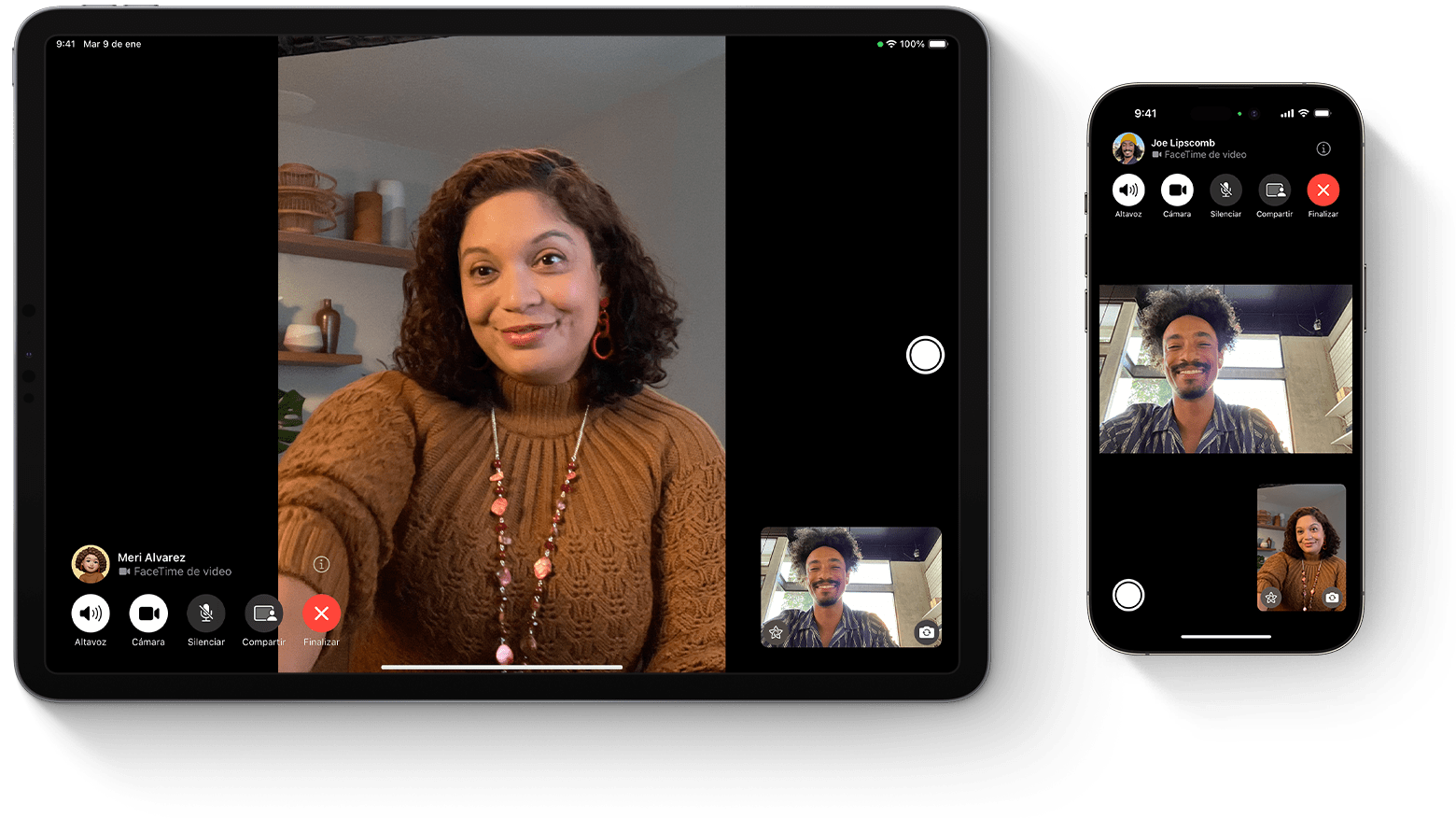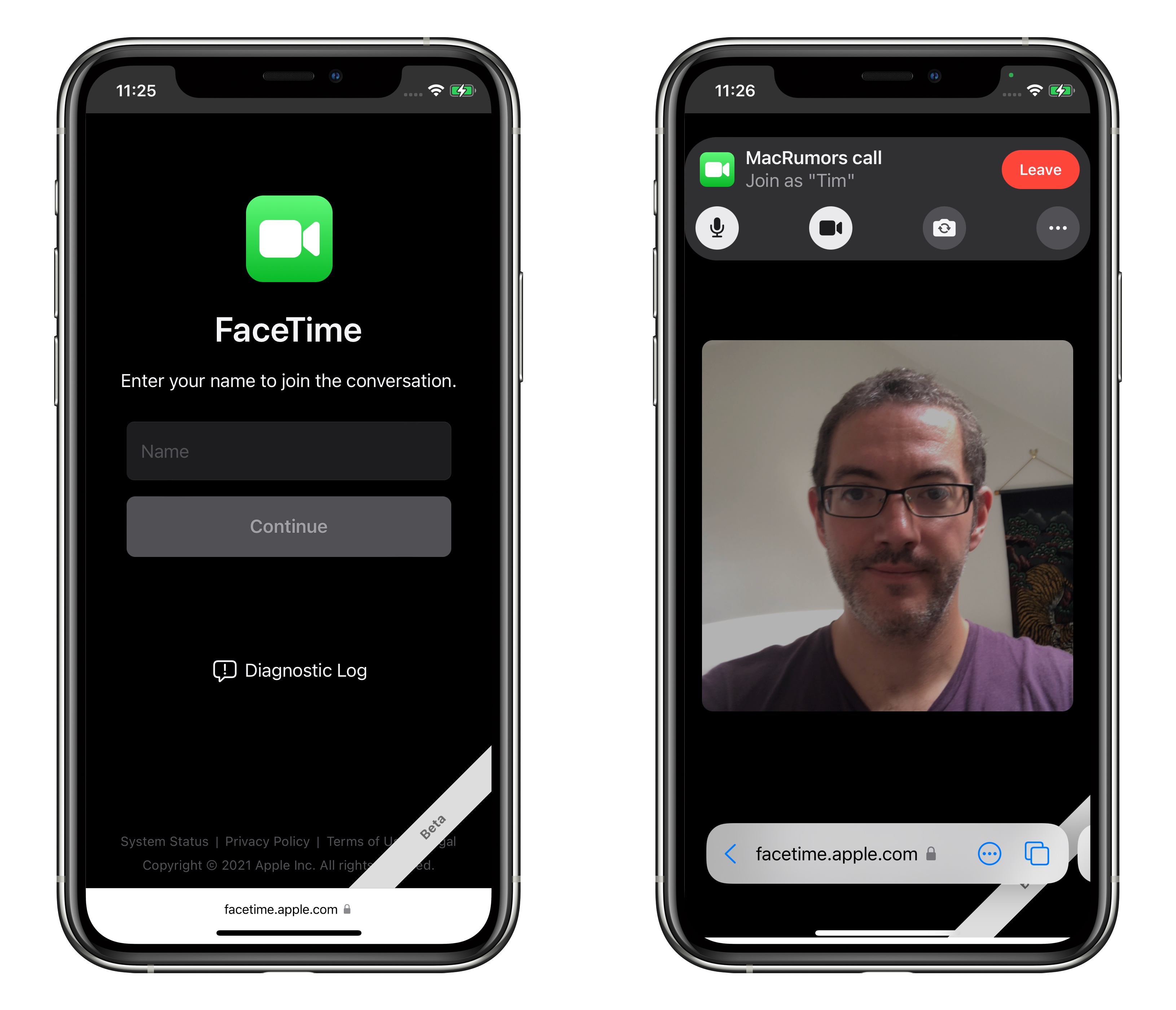Have you ever wondered what happens to your FaceTime call details after you hang up? It's a common thought, especially with so much of our digital life living in the cloud. You might be connecting with loved ones across the globe, sharing laughter, or maybe even important news, and it's natural to think about where all that interaction goes. So, what FaceTime data is stored in iCloud, really?
FaceTime, as you know, is Apple's own video and audio chatting platform. It lets iPhone users connect with one another, and now, it's even possible for folks on Android or Windows devices to join a call using a simple link. This service helps us stay in touch, whether it's for a quick chat or a longer conversation, and it's pretty neat how widely available it has become, so it's almost always there when you need it.
Understanding what data gets saved and what stays private is pretty important for everyone. We use these tools every day, and knowing the details about our digital footprint helps us feel more in control. This article will help clear up exactly what FaceTime data finds a home in iCloud and what remains just between you and the person you're talking to, in a way that makes sense.
Table of Contents
- What is FaceTime?
- FaceTime and iCloud: The Connection
- What Gets Stored in iCloud from FaceTime?
- What Does Not Get Stored?
- Managing Your FaceTime Data in iCloud
- Recovering FaceTime Call Logs
- FaceTime and Cellular Data
- Frequently Asked Questions About FaceTime and iCloud
What is FaceTime?
FaceTime is a special video telephony product created by Apple. It was once an exclusive feature for iPhones, iPads, and Macs for quite a long time, over a decade, in fact. But these days, it's possible to use it on other platforms, like Windows and Android, which is pretty cool.
You can connect with family and friends around the world using FaceTime for both audio and video calls. It's available on supported iOS mobile devices running iOS 4 and later, and on Mac computers too. This includes iPhone 4 or later, all iPad Pro models, iPad 2 or later, all iPad mini models, and iPod touch 4th generation or later, so there are many ways to use it.
The platform is Apple's video and audio chatting service. It allows Apple device users to communicate with each other through a standard FaceTime video protocol or using another method. For Mac users, FaceTime supports video calls up to 720p, which is a pretty clear picture, actually.
If someone doesn’t pick up your FaceTime call, you can even leave FaceTime messages. This is a handy feature, allowing you to send a quick video or audio message when a live chat isn't possible. It's a bit like leaving a voicemail, but with a personal touch, you know?
FaceTime and iCloud: The Connection
iCloud is Apple’s online service that handles a lot of your data. It's responsible for storing things like your contacts, calendars, notes, bookmarks, reminders, email, photos, videos, and documents. So, it makes sense that FaceTime might also connect with it, in a way.
For FaceTime to work, you generally need to sign in with your Apple ID, which is linked to iCloud. People often ask, "Can't I use FaceTime without being on iCloud?" And the answer is, on the assumption that iCloud is necessary to use it, you typically need that login. You will not be able to sign in or use services such as iCloud, iTunes, Apple Books, the App Store, Apple Pay, iMessage, FaceTime, and Find My iPhone without it, basically.
When you set up iCloud for Phone & FaceTime, your phone data, like call history and network provider voicemails, is securely stored. This means you can access your phone and FaceTime data on all your devices. It's quite convenient, as a matter of fact, to have everything synced up.
However, there's been some discussion about what exactly gets saved. Some things you read might not explicitly say that Phone or FaceTime apps save to iCloud, and you might think they don't. But the system does store certain information related to your calls, which we'll get into shortly.
What Gets Stored in iCloud from FaceTime?
When it comes to FaceTime and iCloud, the primary data that gets stored is related to your call history and certain settings. This is part of the "Phone & FaceTime data" that iCloud keeps safe for you. It's not the actual content of your conversations, but rather the records of them, so that's a key distinction.
Specifically, iCloud stores your FaceTime call logs. This includes information about who you called, who called you, and the time and date of these interactions. These logs are what allow you to view your FaceTime call history on your iPhone or iPad. It's pretty helpful for keeping track of your communications, you know.
There have been reports, for instance, from a Russian security firm, that Apple has been storing call logs and FaceTime logs to iCloud for as long as four months. These reports suggest that FaceTime logs are among the types of data that are kept. This kind of information, like call history and carrier voicemails, is securely stored in the cloud when you set up iCloud for Phone & FaceTime.
So, while the specifics can feel a little bit technical, the main takeaway is that records of your calls, not the calls themselves, are what get saved. This allows for features like seeing your recent calls across all your devices, which is quite useful. It's also how you might recover missing call logs, which we'll discuss later, too.
Call History and Metadata
The call history saved in iCloud includes details like the contact information of the person you called or who called you, and the duration of the call. It's like a digital record book of your conversations. This metadata is important for the functionality of your devices and for keeping your communication history consistent across them, really.
This data also includes any FaceTime messages you might leave when someone doesn’t pick up your call. These messages are essentially short audio or video clips, and their existence would be noted in the call log. It's not the full content of the message itself that's stored in iCloud in a way that's easily accessible to Apple, but the fact that a message was left, and its associated metadata.
When you set up iCloud for Phone & FaceTime, this data becomes available on all your devices. This means if you make a call on your iPhone, the log of that call will appear on your Mac or iPad too, which is very convenient. It helps keep your communication history synchronized, so you always have the full picture, basically.
It's worth noting that while Apple stores this information, they have policies around privacy. They aim to keep your content private, and the storage of call logs is generally for functional purposes, like helping you keep track of your calls or restoring them if needed. This is how the system is designed, after all.
What Does Not Get Stored?
This is a very important point for many people concerned about their privacy. Apple clearly states that they do not log whether your call was answered, and they cannot access the content of your calls. This means the actual audio or video of your FaceTime conversations is end-to-end encrypted and not stored on Apple's servers in a way that they can listen to or view, which is quite reassuring.
So, when you're connecting with family and friends around the world with FaceTime audio and video calls, the actual conversation itself remains private between the participants. This is a core part of Apple's privacy stance, and it applies to FaceTime as well as other communication services like iMessage. It's a big deal for many users, you know.
While Apple may store information sent to them when you or someone else reports spam or misuse, this is different from storing the content of your calls. These reports are for security and integrity purposes, to help keep the platform safe for everyone. It's a way for users to contribute to a better experience, in some respects.
The distinction between metadata (like call logs) and content (the actual conversation) is really key here. Apple's approach is to store the minimum necessary data to provide the service and ensure its proper functioning, while keeping the actual content of your private communications just that: private. This is a fundamental aspect of their privacy policy, basically.
Managing Your FaceTime Data in iCloud
If you're running out of iCloud storage, which happens to many people, you have a couple of options. You can either upgrade your iCloud data plan to purchase more storage, or you can free up iCloud storage by deleting some things. It's a common issue, as a matter of fact, when you use cloud services a lot.
If you opt to free up storage space, you can start by deleting data that you store with iCloud, such as photos, contacts, and messages. However, when it comes to FaceTime data, there's something very important to understand. Deleting FaceTime data from iCloud will also result in the loss of other data stored in the cloud, such as photos, contacts, and messages, which are synced.
The FaceTime data, including call logs and settings, will be deleted from iCloud and won't be available on devices that are synced with iCloud. It’s important to note that once this data is deleted, it won't be available on any of your synced devices. So, it's not just about FaceTime; it affects other linked information, too.
This means you can't simply delete "FaceTime data" in isolation without affecting other parts of your iCloud backup. If you've already disabled FaceTime and FaceTime iCloud data, and you're still seeing issues, it might be related to how iCloud manages overall device backups. You might need to move or copy the data out of iCloud first, and then delete the copy in iCloud, if you want to keep a local version, which is a bit more involved.
Freeing Up Space
To free up space, you typically manage your overall iCloud storage. This involves reviewing what's taking up the most room and deciding what you can remove. Your local copy of data, maybe under /users/yourloginfolder somewhere, or out on a NAS disk storage array, is separate from what's in iCloud. So, you have options for local storage, too.
If you find that FaceTime seems to be keeping saving data to iCloud, even after you think you've disabled it, it could be tied to a larger device backup setting. It's a common point of confusion for users, honestly. Checking your iCloud settings under "Manage Storage" will show you exactly what apps are contributing to your storage usage.
For example, if you want to reduce the amount of data FaceTime uses, you might look at your device backup settings. It's not just the "Phone & FaceTime app saved to iCloud" that you're dealing with, but the entire backup of your device, which includes various app usage information as it relates to use of iCloud, Apple services, and more.
So, managing FaceTime data in iCloud is really part of managing your entire iCloud backup. It's not a separate, distinct category that you can just wipe clean without affecting other synced items. This interconnectedness is a key design choice by Apple, and it's something to keep in mind, obviously.
Recovering FaceTime Call Logs
If you need to recover your missing FaceTime call logs, you could consider restoring a backup that contained the logs. This is a potential way to get back those records of your calls. It's a common method for recovering lost data on Apple devices, as a matter of fact.
However, there's a significant point to remember here. Restoring an older backup could potentially cause you to lose newer data that wasn't included in that specific backup. For instance, if you made calls or received messages after the backup was created, those newer items might not be there after the restore. So, it's a bit of a trade-off, you know.
To view your FaceTime call history on iOS (iPhone and iPad), you can follow simple steps. Whether you’re using an iPhone or iPad, you can typically find your call history within the Phone app or the FaceTime app itself. This history is usually synced through iCloud if you have that feature enabled, which is pretty handy.
The ability to recover call logs from a backup emphasizes that these logs are indeed stored in iCloud as part of your device's backup. It's not just a temporary record on your device. This is how the system ensures continuity across your Apple devices, which is quite clever.
FaceTime and Cellular Data
A common question people have is, "Does FaceTime use data or call minutes?" The answer is pretty clear: FaceTime does use data and not cellular call minutes. So, if you want to save data on your iPhone, you can turn cellular off for FaceTime, which will force it to use Wi-Fi instead, basically.
This means that every FaceTime call, whether it's audio or video, consumes data from your cellular plan if you're not connected to Wi-Fi. The amount of data used depends on the quality of the call and its duration. Video calls, especially those up to 720p like on Mac, will use more data than audio-only calls, obviously.
Knowing this can help you manage your data usage, especially if you have a limited data plan. For example, if you're often on the go and making FaceTime calls, keeping an eye on your data consumption is a good idea. You can check your phone's settings to see how much data FaceTime has used, which is quite useful.
It's a common misunderstanding that because it's a "call," it might use call minutes. But Apple's FaceTime is an internet-based service, similar to other messaging and calling apps that rely on data. This is why you can use it on Android or Windows devices via web browser links in iOS 15 and macOS Monterey, because it's all data-driven, you know.
Frequently Asked Questions About FaceTime and iCloud
Does FaceTime store call content in iCloud?
No, Apple does not store the content of your FaceTime calls in iCloud. The actual audio and video of your conversations are end-to-end encrypted. This means only you and the person you are speaking with can access the content. Apple explicitly states they cannot access the content of your calls, which is a strong privacy measure, really.
How long does FaceTime call history stay in iCloud?
FaceTime call history, which includes logs of who you called and when, is stored in iCloud as part of your phone and FaceTime data. Reports suggest this data can be stored for several months, possibly up to four months or more. This allows you to view your call history across devices and potentially recover it from a backup, so it stays for a while.
Can I use FaceTime without iCloud?
Generally, you need an Apple ID, which is linked to iCloud, to sign in and use FaceTime. While the direct content of your calls isn't stored, the service relies on your Apple ID for authentication and syncing certain data like call logs. You won't be able to sign in or use services such as iCloud, iTunes, Apple Books, the App Store, Apple Pay, iMessage, FaceTime, and Find My iPhone without it, basically.
Understanding what FaceTime data is stored in iCloud helps you manage your digital life better. It's clear that while your call content remains private, call logs and related metadata do find a home in iCloud, helping you keep track of your communications across devices. For more information about Apple's privacy policies, you can visit their official privacy page. Learn more about data management on our site, and link to this page understanding cloud services.



Detail Author:
- Name : Lon Grimes
- Username : verda.weissnat
- Email : cathy80@rowe.org
- Birthdate : 1983-12-26
- Address : 6062 Margarette Cliffs Lake Amarastad, NM 72076-8405
- Phone : +15413848205
- Company : Welch, Kuhn and McCullough
- Job : MARCOM Director
- Bio : Porro aut vitae qui eos. Debitis ut quam molestias.
Socials
facebook:
- url : https://facebook.com/mclaughlinm
- username : mclaughlinm
- bio : Corporis voluptas iure eum a architecto amet.
- followers : 146
- following : 1166
instagram:
- url : https://instagram.com/mekhimclaughlin
- username : mekhimclaughlin
- bio : Qui aut repellendus beatae omnis temporibus quia. Fugit alias omnis voluptatem.
- followers : 3869
- following : 483
tiktok:
- url : https://tiktok.com/@mekhi4154
- username : mekhi4154
- bio : Et sequi voluptatem sapiente repellat et ea. Modi dignissimos libero tempore.
- followers : 3093
- following : 2502

